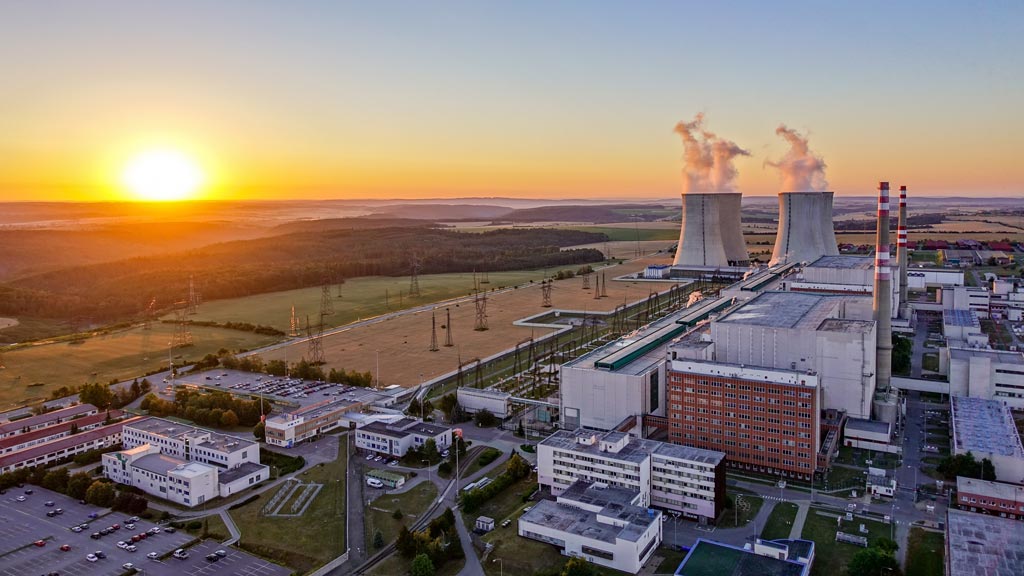
In the world of power generation, nuclear manufacturing stands out as a beacon of innovation and efficiency. Here, precision is not just a requirement; it’s the standard.
As we dive into this high-stakes realm, the spotlight falls on the crucial role of Enterprise Resource Planning (ERP) systems. These aren’t just tools; they’re lifelines ensuring that nuclear manufacturing companies not only meet but exceed the rigorous standards set by the industry and regulatory bodies.
Let’s explore how ERP systems become the backbone of operational excellence and compliance in the nuclear sector.
The Landscape of Nuclear Manufacturing
Nuclear manufacturing is at the heart of clean energy production, powering nations and setting the pace for technological advancements in reactor technology. From the intricate processes of the nuclear fuel cycle to the robust design of pressurized water reactors, the industry is a testament to human ingenuity in harnessing nuclear technology for power generation.
However, this innovation comes with its set of challenges:
- Regulatory Framework: The Nuclear Regulatory Commission (NRC) and the Department of Energy lay down a complex web of nuclear manufacturing regulations focused on safety, environmental protection, and quality control. Navigating this framework is crucial for companies in the nuclear sector.
- Advancements in Nuclear Technology: As the industry evolves, so do the technologies. Keeping up with advancements in reactor technology and integrating these innovations into manufacturing processes demands a high level of precision and adaptability.
- Commitment to Clean Energy: Amidst global calls for renewable energy, nuclear manufacturing plays a pivotal role. Balancing the generation of electricity with environmental protection underscores the sector’s significance in the global energy mix.
ERP Requirements for Nuclear Manufacturing
For nuclear manufacturing companies, an ERP system is not just a software solution; it’s a strategic asset. To meet the exacting standards of the nuclear industry, ERP systems must be equipped with specific features:
- Compliance Management: The ERP must have robust tools to manage and monitor compliance with nuclear manufacturing regulations effectively. This includes features for tracking changes in regulations and ensuring that all operations align with the latest standards.
- Quality Control and Assurance: Given the critical nature of nuclear technology, the ERP system should integrate quality control modules that facilitate continuous monitoring and assessment of manufacturing processes. This ensures that every component and every piece of reactor technology adheres to the highest safety and quality standards.
- Document and Record Keeping: With the regulatory landscape’s complexity, having a sophisticated document management system is crucial. The ERP should enable seamless record-keeping, supporting the review process and providing auditable trails for compliance and quality control.
An ERP system tailored for the nuclear manufacturing sector does more than streamline operations—it ensures that companies can confidently meet regulatory demands while pushing the boundaries of nuclear technology and clean energy. It’s about building a future where nuclear power continues to be a key player in the global pursuit of sustainable and safe energy solutions.
In essence, navigating the nuclear manufacturing landscape demands more than just expertise in nuclear technology; it requires the right ERP system to weave compliance, quality control, and innovation into the fabric of daily operations. This is where the journey toward operational excellence and regulatory compliance in nuclear manufacturing truly begins.
Ensuring Compliance with Nuclear Manufacturing Regulations
The path to compliance in nuclear manufacturing is intricate, governed by a stringent set of regulations from bodies like the Nuclear Regulatory Commission (NRC). To navigate this path, companies need more than diligence; they require the right tools. ERP systems are those tools, designed to:
- Automate Compliance Tasks: From tracking the latest nuclear manufacturing regulations to ensuring every aspect of production meets NRC standards, ERP systems automate these tasks, reducing the margin for error.
- Simplify the Review Process: The complexity of compliance reviews can be daunting. ERP systems streamline this process, providing clear, accessible records and documentation that satisfy regulatory requirements.
Integrating ERP with Nuclear Technology and Power Generation
As nuclear manufacturing evolves with new reactor technologies and a focus on clean energy, integrating ERP systems becomes crucial. These systems support:
- Power Reactor Management: ERP solutions tailored for the nuclear industry help manage the lifecycle of power reactors, from design and construction to operation, ensuring efficiency and compliance.
- Advancing Renewable Energy Goals: With the global shift towards renewable energy, ERP systems enable nuclear facilities to contribute to clean energy production, aligning nuclear power generation with sustainability objectives.
Key Considerations When Selecting an ERP for Nuclear Manufacturing

Choosing a nuclear manufacturing ERP system is a significant decision. Here are key factors to consider:
- Industry-Specific Features: Look for ERP systems with modules designed for the nuclear sector, focusing on compliance management, quality control, and reactor technology integration.
- Scalability and Flexibility: The ERP system should grow with your company, adaptable to new technologies and regulatory changes in the nuclear industry.
- Vendor Expertise: Choose a vendor with experience in the nuclear manufacturing sector and a track record of supporting companies in navigating regulatory landscapes.
The Bottom Line
In the high-stakes world of nuclear manufacturing, where precision and compliance are paramount, ERP systems stand as indispensable allies. They not only streamline operations and enhance efficiency but also ensure that companies can meet the stringent standards set by regulatory bodies. As we look towards a future where nuclear energy plays a crucial role in the global energy mix, the integration of ERP systems in nuclear manufacturing becomes not just beneficial but essential.
For nuclear manufacturing companies aiming to lead in the era of clean energy and advanced nuclear technology, selecting the right ERP system is a step toward securing a competitive edge. It’s an investment in operational excellence, compliance, and ultimately, in contributing to a sustainable energy future.
As the industry continues to evolve, embracing ERP solutions tailored for nuclear manufacturing is more than a strategic decision—it’s a commitment to excellence, safety, and the future of power generation.
